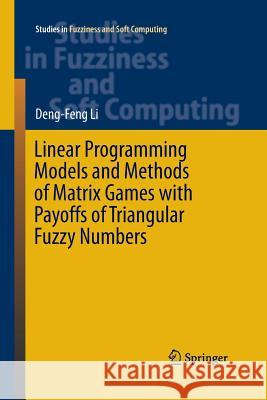Linear Programming Models and Methods of Matrix Games with Payoffs of Triangular Fuzzy Numbers » książka
topmenu
Linear Programming Models and Methods of Matrix Games with Payoffs of Triangular Fuzzy Numbers
ISBN-13: 9783662515655 / Angielski / Miękka / 2016 / 165 str.
Kategorie:
Kategorie BISAC:
Wydawca:
Springer
Seria wydawnicza:
Język:
Angielski
ISBN-13:
9783662515655
Rok wydania:
2016
Wydanie:
Softcover Repri
Ilość stron:
165
Waga:
0.27 kg
Wymiary:
23.39 x 15.6 x 0.99
Oprawa:
Miękka
Wolumenów:
01
Dodatkowe informacje:
Wydanie ilustrowane











